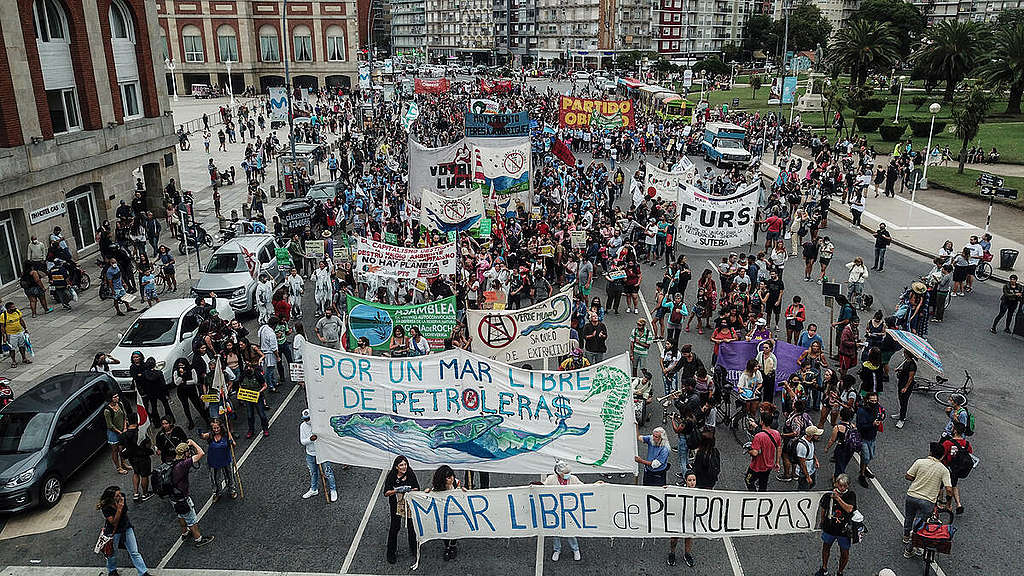Greenpeace Argentina had started the year with bad news: the Argentine State had divided up the Argentine Sea in favour of the interests of the oil industry by approving the project of the Norwegian company Equinor to carry out seismic exploration off the coast of Buenos Aires.
So, in early January, they decided they needed to act. Together with ally organizations (Surfrider Argentina, Fundación Patagonia Natural, Kula Earth, Asociación de Surf Argentina, Organización Mar, Asociación de Surf Necochea Quequén, Asociación de Surf General Alvarado de Surf in Miramar, Ecos de Mar, Asociación Argentina de Abogados/as Ambientalistas), Greenpeace Argentina filed a class action environmental lawsuit to demand that the approval of seismic exploration in the Argentine Sea be declared unconstitutional, and null and void. The advancement of this project would not only be a condemnation for marine species but also for coastal communities and beaches.
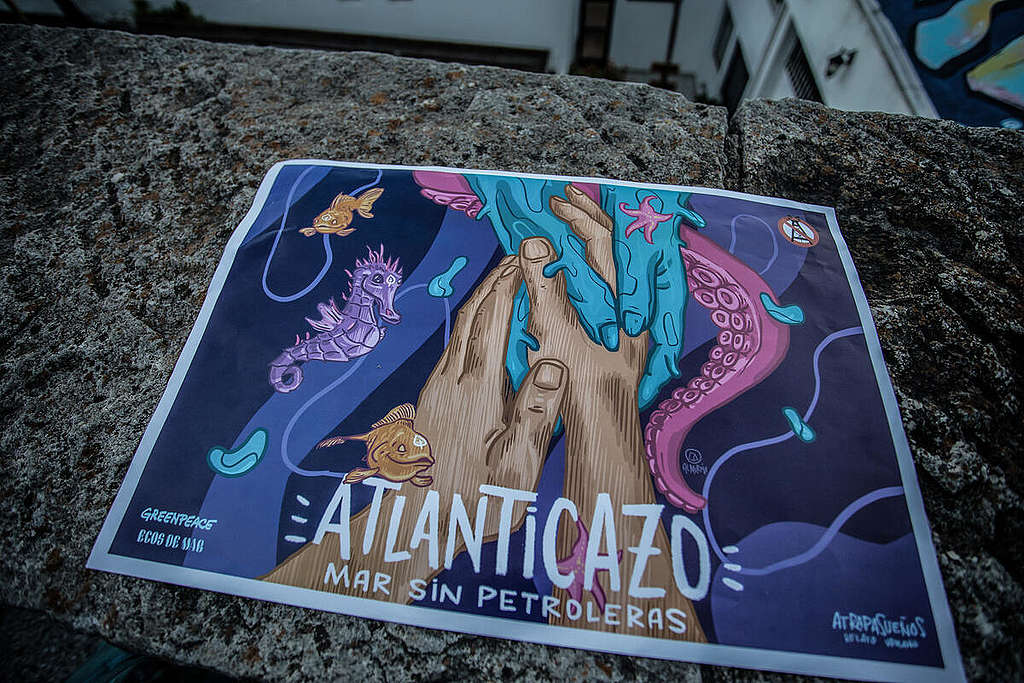
Time to make noise
People and organisations all over Argentina said ENOUGH, took to the streets and what we now call the #Atlanticazo movement emerged: demonstrations and public protests multiplied in many cities across the country against this project and even from other countries.
The defenders of the oil industry attacked with their own statements trying to convince people that this would bring -false- prosperity. But the movement did not back down and because of collective action and the relentless people power, last week, the Federal Court N°2 of Mar del Plata finally granted the precautionary measure through ruling the immediate suspension (and without time limit) of oil exploration. Basically, this means that Equinor will not be able to move forward with its projects until there is an exhaustive review of all the points that we have been warning about.
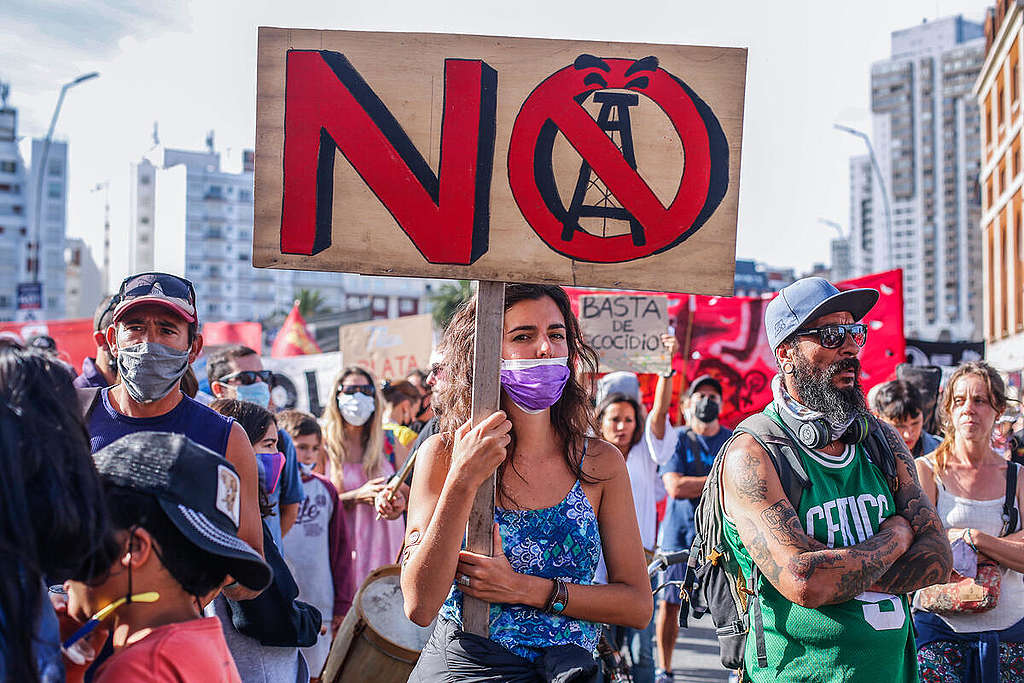
Greenpeace, together with citizens and several organizations, had been denouncing that the process was not transparent and citizens did not have access to information. The local communities that would be affected were not consulted, particularly the community of Mar del Plata and the coastal cities. For the ruling to state that the right of access to public environmental information, the right to citizen participation and compliance with the Escazú Agreement must be respected by state authorities in the management of environmental issues sets an important precedent.
Additionally, the ruling, which also unified 4 cases that had been filed by other sectors of civil society, reinforces what organizations and citizens have been pointing out: that decisions about the environment cannot be made without civil participation and only focusing on the privilege of large corporations.
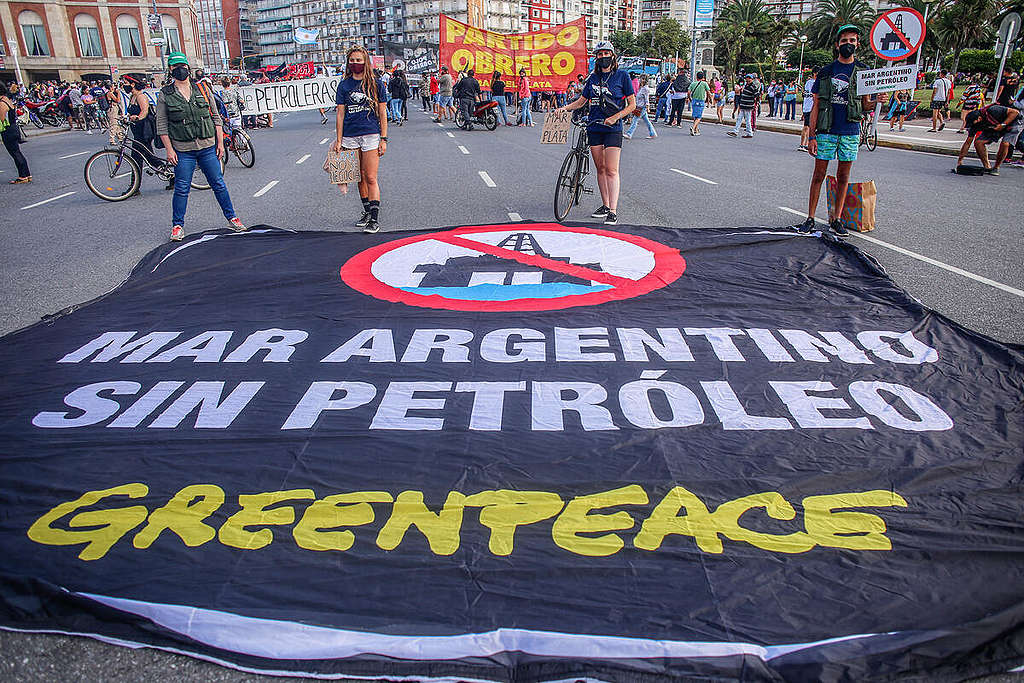
So what does that mean now?
The ruling mentioned the precautionary principle of the right of all to a healthy and balanced environment for present and future generations because people have the right to know, access, participate and be heard when decisions that will affect society and public trust are made.
Another point highlighted in the ruling (and emphasised repeatedly at the public hearing) is that Equinor failed to give sufficient explanations regarding the precautionary principle that must govern all seismic exploration planning. The Environmental Impact Study submitted by Equinor did not contemplate the cumulative impacts (either simultaneous or staggered) of the explorations to be carried out in the Argentine Sea, especially given that this is not the only planned project, as there are 14 other applications for similar activity in the Argentine Sea underway.
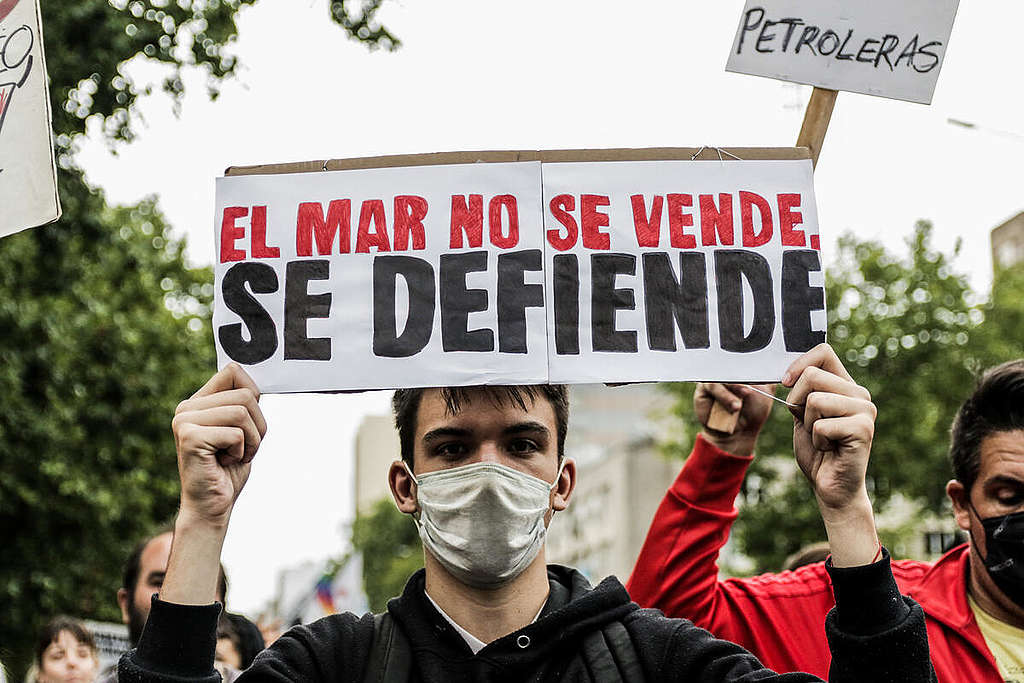
Greenpeace has warned about the danger of oil spills linked to offshore oil activity. According to a study by the Universidad Nacional del Centro, if oil exploitation in the Argentine Sea were to advance, oil spills would be inevitable, including large spills of more than 1,000 barrels.
The ruling also confirmed the areas to be explored are part of an oceanic marine ecosystem of high productivity and biological diversity (Argentine Sea Ecoregion). It points out that the impact on marine invertebrates, fish, marine mammals, sea turtles and seabirds, as a consequence of the exposure to the sound radiated by a seismic campaign may be significant.
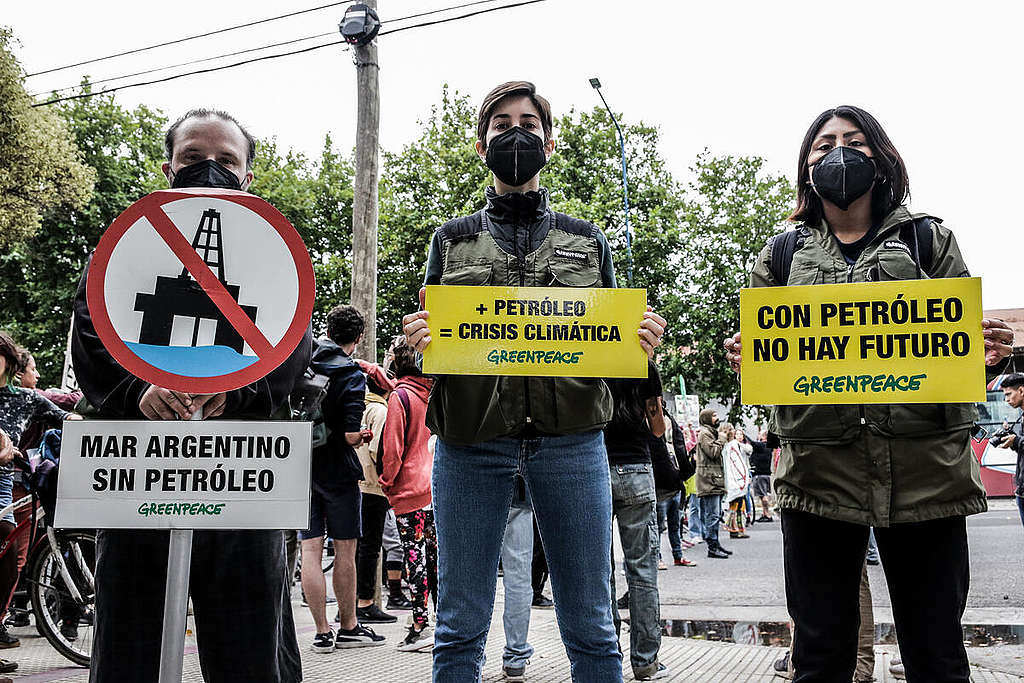
People power
This is a triumph for the community and people who made their voices heard. This step was preceded by a massive participation in the public hearing. While the injunction is appealed by the government, the public outcry will continue as expansion of fossil fuel extraction and production not only affects the marine environment but further aggravates the climate crisis, poses a risk to human rights and the rights of future generations.
Laura Colombo is the Digital Engagement Coordinator with Greenpeace Argentina.
